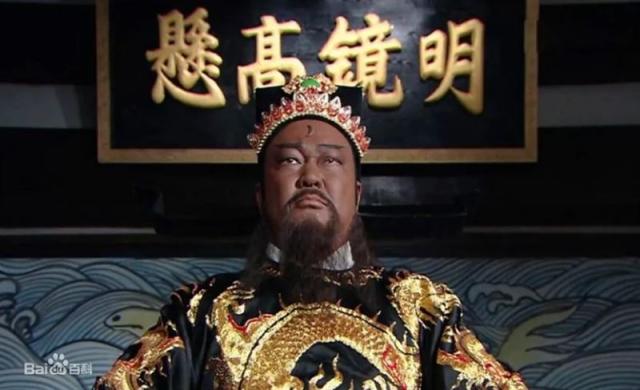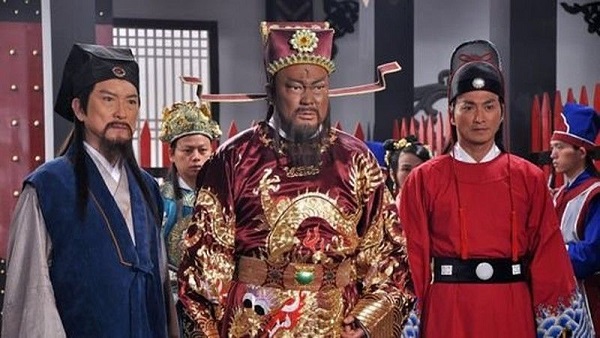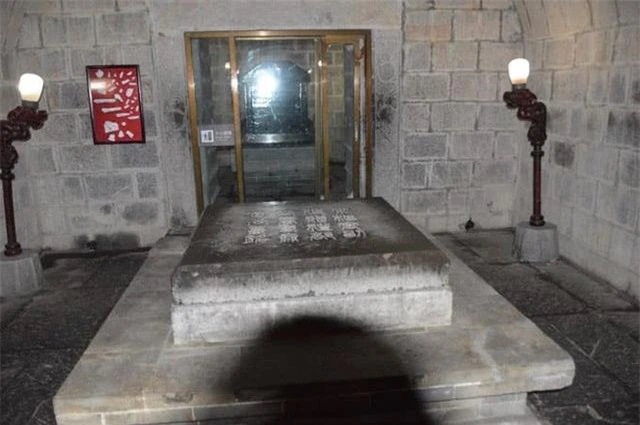Bao Cong or Bao Thanh Thien is a name that is no longer unfamiliar because of the popularity of the Chinese television series made about his life. This is a real famous mandarin in Chinese history.
His real name is Bao Chung (999-1062), his literal name is Hy Nhan. In 1027, Bao Cong passed the doctoral exam and then held many positions, from governor of Thien Truong district, governor of Doan Chau to the position of royal historian of the Northern Song Dynasty (960 – 1127).
The highest position this illustrious mandarin ever held was Deputy Prime Minister, equivalent to the position of Deputy Prime Minister.

Bao Cong's image in the movie.
In cultural and artistic works, as well as cinema, Bao Cong is widely known for holding the position of Prime Minister of Khai Phong. In fact, Bao Cong only held this position for about a year. However, during this time, the security situation in Khai Phong prefecture was greatly improved, leaving a lasting echo for generations to come.
Bao Zheng's strange funeral with 21 coffins surprised people and the secret of his final resting place was only revealed after more than 800 years. The story of the honest official and the mysterious tomb has attracted the attention of many Chinese people for many centuries.
21 coffins at the funeral
According to historical records, on the day Bao Chung was sent off, up to 21 coffins, large and small, were carried out of the city gates, making the people who witnessed them surprised.
Holding such a large funeral shows that the deceased is either a noble or a person of great merit and important status.
According to records, from the time he fell ill until his death, it was only one month. Bao Thanh Thien died at the age of 64, an age considered to be longevity in ancient times. His death shocked and mourned both the court and the people. Emperor Song Nhan Tong personally came to pay his respects and ordered a one-day break from court to commemorate him.
On the day of the funeral, when 21 coffins were carried out of the citadel, people could not distinguish which was Bao Chung's real coffin to say goodbye to him one last time. This is a plan that has been carefully discussed by Bao Chung's family.
There are many theories put forward for this, of which the most understandable reason is to avoid revenge from old enemies.

Bao Cong was a real honest mandarin in Chinese history.
Everyone knows that Bao Chung is an upright and fair person, so it is inevitable that he often offends many people in the court. Because he was so honest and straightforward, he even protested against Emperor Tong Nhan Tong in front of the civil and military officials.
Most of the people who were “exposed” by Bao Zheng were dismissed from their positions and stripped of power, and there was certainly resentment in their hearts. Not only did Bao Zheng bravely expose the crimes of mandarins, he also dared to confront the royal family. The most famous is the case where he offered a harp to Truong Nghieu To, uncle and uncle of Concubine Truong Quy – the beloved concubine of Song Nhan Tong.
Therefore, the use of 21 coffins for the funeral is partly to hide the true location of Bao Chung's coffin, to avoid the fact that old enemies wanted revenge and dug up his grave to vent their anger.
However, in reality, even if Bao Zheng had no enemies, his family would probably still use this funeral method.
Because in ancient times, when science was not yet developed, people were often superstitious and believed in feng shui, especially graves. The ancients believed that the souls of ancestors could bless future descendants. If an ancestor's grave was violated, it would affect the fortunes of the entire family.
Furthermore, Bao Chung was a famous mandarin throughout the country. After his death, there will certainly be many groups of monks looking at his tomb to look for treasures. The tombs of previous emperors were even stolen, let alone the tomb of a mandarin.
Although Bao Chunh is an honest person and his burial items are not valuable, there will certainly still be grave robbers who risk their luck and try their luck. In this case, his family will also use this funeral method to hide the true location of the grave.
After Bao Chung was buried, only his descendants knew the exact location of the true grave, and the outside world was unaware. The remaining 20 coffins after the funeral were mostly recovered by the family and given to poor people.
Perhaps because of their great respect for Bao Zheng, from then on, the tomb community set up an unwritten rule for themselves: not to violate his grave.
The real tomb and the centuries-long controversy
Although 21 coffins were used during the funeral to create a distraction, causing most people to not know where Bao Thanh Thien was buried, according to historical records, his coffin was later brought to safety. Buried at home in Anhui province.
Before 1973, two localities (Anhui province) and Gongyi (Henan province) had a fierce debate about where Bao Zheng's grave should be kept. Both sides affirm that Bao Chung's grave is located in their area. It was not until 1973, when Bao Cheng's tomb was discovered, that this controversy came to an end.
In the spring of 1973, a steel factory on the outskirts of Anhui province needed to level a surrounding plot of land to accommodate factory expansion. On this land there is a complex of ancient tombs. Local people only know that this is an ancient grave site from the Song Dynasty, but do not know exactly whose grave it is.
After learning this information, the authorities decided to excavate the grave site. And it was during this excavation that archaeologists found Bao Chung's tombstone and remains.

In 2004, Bao Chung's grave was recognized by the government as a city-level cultural relic. Today, this place has become a famous tourist destination, each year attracting countless tourists to visit and admire the demeanor of the honest mandarin: “A life of integrity, two empty hands.”
Source: Sohu




